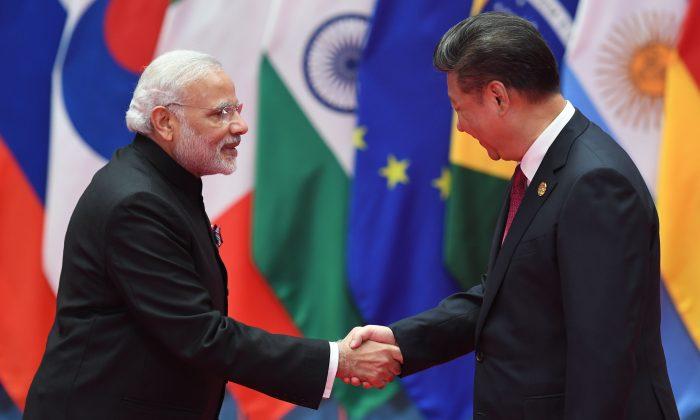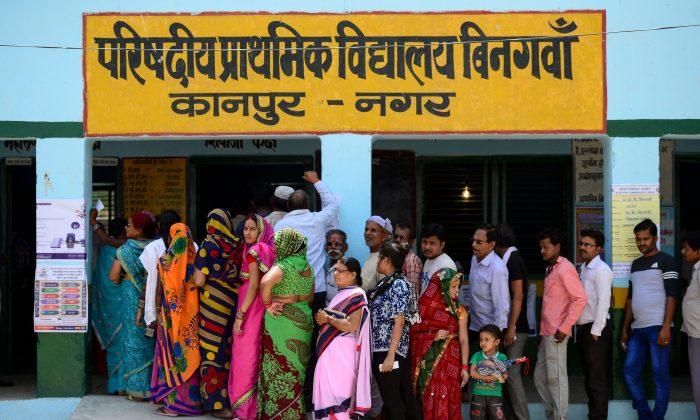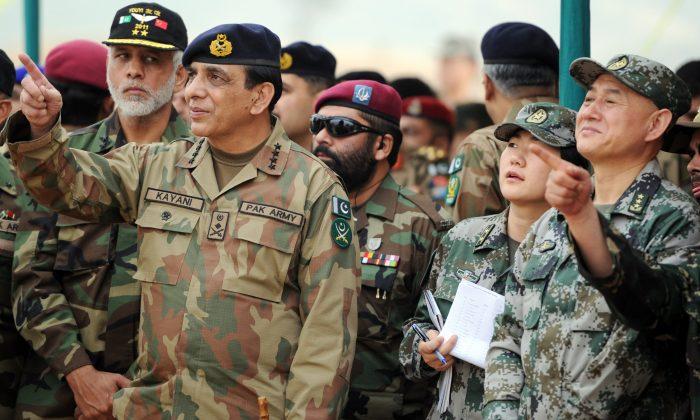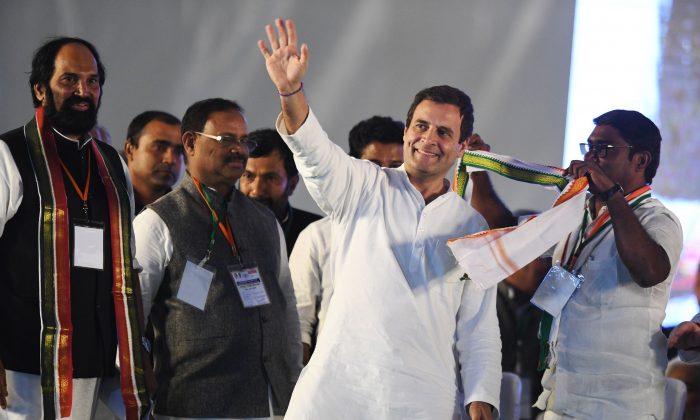DELHI, India—Dealing with regional rival China will be a key component of Indian Prime Minister Narendra Modi’s second term in office, experts say, made evident by his choice of people for key foreign relations positions.
“Both our current foreign secretary and the foreign minister are China experts, so it is clear who is the focus of this government,” said Jayadev Ranade, a former senior officer with India’s foreign intelligence agency, Research and Analysis Wing, and a China expert. Modi’s foreign affairs minister, Subrahmanyam Jaishankar, and foreign secretary, Vijay Gokhale, have both served as India’s ambassador to China in the past.
Modi is expected to meet Chinese leader Xi Jinping on the sidelines of the upcoming Shanghai Cooperation Organization summit held June 14 to 15 in Bishkek, Kyrgyzstan, and again at the G-20 summit in Osaka, Japan, in late June. The Indian prime minister has also reportedly extended an invitation to Xi for a summit in India some time this year.
India an Obstacle for China’s OBOR
One of the top agenda items for China when it comes to discussions with India is to prevent Delhi from blocking countries in the region from participating in Beijing’s One Belt, One Road (OBOR) initiative.The project has in recent times ran into several roadblocks in South Asia, with India urging its allies to walk away from the plan. India is concerned about China’s growing influence in the region, and is also worried about implications to its sovereignty as the China-Pakistan Economic Corridor of the project passes through Kashmir, a disputed region between India and Pakistan.
Recent examples of obstacles to China’s ambitions in the region include Bangladesh canceling an expansion of a major highway that was to be built by a Chinese company, and the Maldives rethinking its ties to Beijing. The island nation’s newly elected government is more closely allied with India than China.
Faced with India’s opposition to the project, China has been forced to give concessions on the international stage as an attempt to get India on board with OBOR.
Earlier this year, China lifted its objections to the United Nations’ move to declare Masood Azhar, head of Pakistan-based terrorist group Jaish-e-Muhammad, a terrorist, risking straining its relations with Pakistan.
Azhar was reportedly behind a deadly attack on an Indian security convoy in Kashmir in February, which lead to the death of 44 Indian soldiers.
Following the attack, India stepped up diplomatic pressure to declare Azhar a terrorist, receiving support from the United States, the UK, France, and finally China.
But that may have come at a cost for India, with Beijing expecting a concession from India in return. Rajeesh Kumar, an associate fellow at the Indian government-funded Institute for Defence Studies and Analysis, noted that India has recently adopted a softer stance on OBOR.
“For this year’s [OBOR] summit, India didn’t issue any written statements opposing it, like [it] did last time,” Kumar said.
But Modi’s second term could see a more intense rivalry between the two powers, as they each strive to expand their sphere of influence by forging closer bilateral relations with neighboring countries or forming international alliances. This is all the more so for India, which seeks closer ties with China rivals such as the United States and Japan, as Beijing increases its footprint in India’s arch-rival, Pakistan.
“[China’s] efforts to contain India predates whatever has happened recently. As China has become economically stronger, it has started to flex its muscles,“ Ranade said in a previous interview. ”They have been at it for a long time.”




Friends Read Free